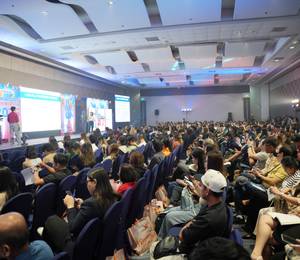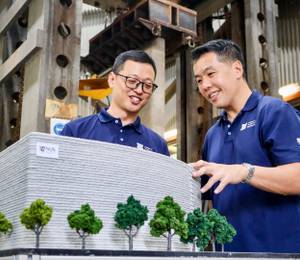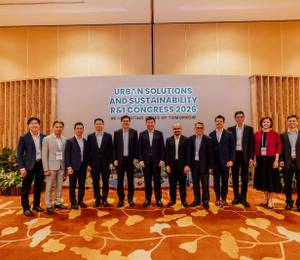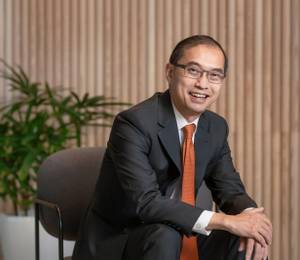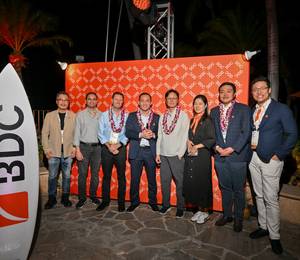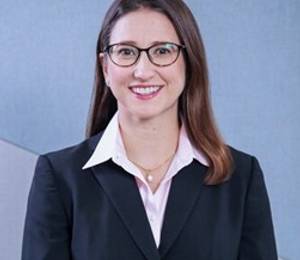Photo captions:
FIRST PHOTO: (From left) Mr Peter Lam Principal/CEO of Temasek Polytechnic, Minister of State for Sustainability and the Environment, Mr Desmond Tan, and Mr Ram Bhaskar, NEA’s Deputy Chief Executive Officer (Environmental Protection) and Director-General of Environmental Protection launching the Chiller Refrigerant Handling course at Temasek Polytechnic. Photo: © Temasek Polytechnic
SECOND PHOTO: Minister of State for Sustainability and the Environment, Mr Desmond Tan (fourth from left) accompanied by Mr Ram Bhaskar, NEA’s Chief Executive Officer (Environmental Protection) and Director-General of Environmental Protection (first from left) and Mr Peter Lam Principal/CEO of Temasek Polytechnic (second from left) observing the practical training of the Refrigerant Handling for Chiller course. Photo: © Temasek Polytechnic
From October 2022 onwards, companies that carry out the installation, maintenance or decommissioning of water-cooled chillers will be required to employ at least one certified chiller technician to carry out or supervise water-cooled chiller servicing jobs that involve refrigerant handling.
Singapore – Minister of State for Sustainability and the Environment, Mr Desmond Tan launched Singapore’s first course on chiller refrigerant handling at Temasek Polytechnic (TP) on 15 September 2021. The course, a collaboration between the National Environment Agency (NEA) and TP, is intended to equip chiller technicians in the refrigeration and air-conditioning (RAC) industry with essential knowledge and skills to handle refrigerants correctly during the installation, maintenance, and decommissioning works on water-cooled chillers. The course supports the aim of the Environmental Protection and Management (Amendment) Bill, which was passed in Parliament on 13 September 2021.
The Environmental Protection and Management (Amendment) Bill is aimed at reducing Singapore’s greenhouse gas (GHG) emissions arising from hydrofluorocarbon (HFC) gases in the RAC sector. HFC gases are commonly used as refrigerants in RAC equipment. These gases are sometimes vented to the atmosphere during the installation, maintenance and decommissioning of such equipment. In the atmosphere, HFCs are much more potent greenhouse gases than carbon dioxide and contribute significantly to global warming. For example, the typical refrigerant used in chillers, R134a, has a global warming potential (GWP [1]) of 1,300. In comparison, carbon dioxide has a GWP of 1.
From October 2022 onwards, companies that install, maintain or decommission water-cooled chillers will be required to employ at least one certified chiller technician when any work on a water-cooled chiller involves refrigerant handling.
Mr Ram Bhaskar, NEA’s Deputy Chief Executive Officer (Environmental Protection) and Director-General of Environmental Protection, said, “TP’s and our industry partners’ contributions have been invaluable in planning and designing this course for chiller technicians. The course will raise the industry’s competency in handling HFC refrigerants and contribute to Singapore’s efforts in mitigating greenhouse gas emissions. The programme is an important measure to help Singapore achieve its commitment under the Paris Agreement to peak emissions at 65 MtCO2e around 2030.”
For TP, as front runners in sustainability, this course forms part of its mission to uplift the RAC industry, especially in relation to sustainability and climate change mitigation. “In TP’s School of Engineering, our vision is for our students to embrace sustainability and contribute towards the betterment of our community, with the knowledge and skills gained. This course is an excellent example of how, equipped with the right training, chiller technicians can help elevate the RAC industry, in relation to sustainability and climate change mitigation”, said Mr Wong Kia Ngee, Senior Director/School of Engineering & Special Projects, Temasek Polytechnic.
For more information on the course, visit https://www.tp.edu.sg/schools-and-courses/adult-learners/all-courses/skillsfuture-series/refrigerant-handling-for-chiller.html
[1] Global warming potential (GWP) is a measure of the warming effect of a gas relative to the warming effect of an equivalent mass of carbon dioxide (CO2), usually over a 100-year time horizon.
